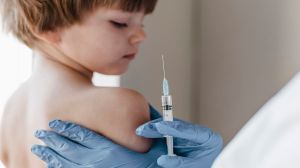World Rare Disease Day 2023: Every year, on the last of February, the Rare Disease Day is observed to to raise awareness for rare diseases and improve access to treatment and medical representation for individuals with rare diseases. A rare disease is a disease that affects a small percentage of the population.
According to WHO, rare disease is often debilitating lifelong disease or disorder with a prevalence of 1 or less, per 1000 population.
However, different countries have their definitions to suit their specific requirements and in the context of their population, the health care system and resources. There are around 7000 conditions included in the rare diseases category.




‘Diagnosis is a challenge’
The diagnostic industry plays a pivotal role in giving the direction towards correct, evidence-based, meaningful patient management. An early diagnosis leads to early access to therapy and compliments efficient management of the patient’s condition.
“More than 80% of rare diseases have a genetic origin. We use various technologies to detect rare diseases, like Sanger sequencing, Multiplex Ligation Dependent Probe Amplification, Fragment analysis, Triplet-primed Polymerase chain reaction, next-generation sequencing and chromosomal microarray. Exome sequencing has been instrumental in detecting many undiagnosed disorders, by looking at the single nucleotide variants, insertion-deletions and copy number variations having causal associations with certain rare diseases,” Dr Reena Nakra, Principal Director, Lab Management and Technical Excellence, Dr Lal PathLabs told Financial Express.com.
Dr. Nakra an understanding of the genetic insult and the right technology to detect the right variation is extremely important for a definitive diagnosis and to implement of the right therapy.
“Learning and evolving in the field of Rare Diseases is only possible if we accept the new testing frontiers with open hands. Genome sequencing, transcriptome analysis, methylation profiling, proteomics, functional studies, long-read sequencing and single-cell transcriptomics are the latest technologies showing promise in the accurate and timely detection of rare diseases,” she told Financial Express.com.
Challenges of Rare Disease Patients in India
According to Observer Research Foundation (ORF), of all cases of rare diseases across the globe, around one-third occur in India. In 2017, India formulated a National Policy on Rare Diseases (NPRD) in 2017, but it lacked clarity on disease coverage, patient eligibility, and cost-sharing. The revised policy was released in March 2021.
Some of the rare diseases prevalent in India include Gaucher’s disease, Pompe disease, Fabry disease, Haemophilia, IBD, cystic fibrosis, thalassemia, and sickle cell anaemia, etc. These diseases are often genetic and can have serious health consequences.
“After a long delay, the National Policy for Rare Diseases was finalised in March 2021 offering monetary aid of INR 20 lakh to only Group 1 patients. This was modified in May 2022, with an amendment in the policy, announcing INR 50 lakh monetary aid to all groups of Rare Diseases. In August 2022, the operational directives were shared with the Centres of Excellence with details on the utilisation of the money. Now, after almost 2 years since the formulation of the policy, a few patients have started getting on-boarded for treatment at the Centres of Excellence. While this is a positive step, Rare Diseases like Lysosomal Storage Disorders (LSDs) are complex and heterogeneous, requiring a sustainable support mechanism for diagnosis and treatment,” Saurabh Singh, the father of Shaurya, an MPS II (Hunter Syndrome) patient told Financial Express.com.
MPS II is a rare disease and falls under Group 3(a) in the National Policy for Rare Diseases. He is also the Co-Founder and Director of the Rare Diseases India Foundation (RDIF), a Patient Advocacy Group.
According to Singh, while the Ministry is trying its best to ensure patients are benefitted from the National Policy for Rare Diseases and the funding provisions, concerted efforts need to be taken to expedite the process of on-boarding of patients to life-saving therapy.
hese genetic diseases are serious chronic, debilitating, and fatal disorders, often requiring long-term, specialized treatments/management and sometimes causing severe disabilities.
“Also, patients diagnosed with chronic Group 3a conditions would need sustainable funding for their treatment. We would like to request the government of India to make specific budgetary provisioning for the continuance of treatment to patients, diagnosed with chronic rare, genetic conditions,” he told Financial Express.com.
Patients with rare diseases in India face numerous challenges, including a lack of awareness and understanding of their conditions, difficulty accessing appropriate healthcare services and treatments, and financial burdens due to high medical expenses.
“Many patients also experience social stigma and discrimination. More needs to be done to increase awareness and understanding of rare diseases, improve access to appropriate healthcare services, and provide financial support to patients and families,” Dr. Aradhana Dwivedi, Medical Geneticist, Army Hospital Research and Referral, Delhi told Financial Express.com.
What Needs to be Done?
Dr. Dwivedi told Financial Express.com that India can enhance the accessibility of orphan drugs (drugs used to treat rare diseases) by implementing policies to incentivize their development and manufacturing, reducing the cost of these drugs, and ensuring their availability in public healthcare systems.
“India can also increase funding for rare disease research, establish a national registry of rare diseases, and provide financial support to patients and families for treatment and management,” Dr. Dwivedi said.
Vikram Batra, Principal, Decision Science team of Axtria Inc told Financial Express.com that Electronic Health Records (EHRs) can also be a powerful tool to bridge the knowledge gap in rare diseases.
“EHRs provide a more comprehensive record of a patient’s medical history than what may be available in some of the traditional patient data sets, such as the longitudinal Patient Claims. For instance, EHRs will typically store information on presenting symptoms associated with rare diseases and results from diagnostic tests. The use of a variety of data sets, in combination, with the technology and AI/ ML models, is the key to helping accelerate the diagnostic journey in rare diseases,” Batra said.
He also emphasised that when used together, data from EHR systems can help fine-tune AI/ ML models and improve the accuracy of predictions.
“Rare diseases are a significant public health challenge that requires a coordinated effort from healthcare professionals, policymakers, and society at large. Increasing awareness and understanding of rare diseases, improving diagnosis and treatment, and providing support to patients and families are critical steps towards improving the lives of those affected by rare diseases,” Dr. Dwivedi added.















